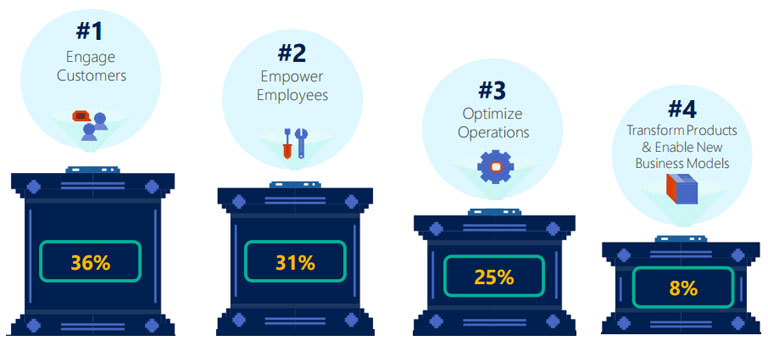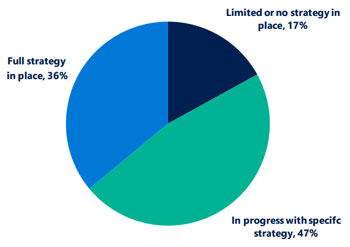 By Travis Barker, Consulting Partner at Stellar
By Travis Barker, Consulting Partner at Stellar
Last month, Microsoft New Zealand released its Digital Transformation Study under the sobering headline New Zealand businesses need to up their digital game in the face of the very real threat of disruption.
One hundred New Zealand business leaders – people involved in shaping digital strategy for large organisations – participated in the study.
Almost 90% of the Kiwis agreed that new data insights can lead to new revenue streams. They recognised value in engaging more deeply with customers, empowering employees, optimising operations and transforming their products or business models.

Despite this high level of endorsement for digital, the study found that only 36% of the organisations had a full digital transformation strategy in place. In the report’s words, “they had mature and developed digital processes, people readiness, and support systems in place to enable new and timely ways of engaging with customers, employees and partners; enabling continued growth and innovation as a truly digital organisation.”

Almost half of the organisations (47%) didn’t have a full strategy, but said they were making progress. They had “specific focus areas for digital processes, people readiness and their support system and see the organisation as already on a digital transformation journey.”
The remainder, 17% of the organisations, reported having little or no digital strategy, something that alarmed Microsoft New Zealand cloud and enterprise lead Dirk Develter, who urges such companies to urgently appoint a sponsor for digital transformation.
“One of the first things you need to do is appoint an owner. Who is going to manage digital transformation for our organisation, who is our spokesperson, our go-to, our thought leader? It could be someone internal, it could be a virtual employee, or a consultant or trusted adviser but you’ve got to take this step and start the process.”
What’s holding New Zealand back?
Three quarters of the New Zealand participants agreed that “every organisation needs to become a digital business to drive growth” but a number of barriers were cited:
- lack of digitally skilled workforce
- lack of government policies and ICT infrastructure
- lack of a business savvy technology leader
- lack of leadership skills in the organisation to ideate, plan and execute
- tightly regulated industries that limit the ability to transform
- no urgency or need to counter industry disruptors
Importance of leadership
Participants were most likely to name CEOs, CIOs and Chief Digital Officers as the people who should be driving digital transformations in their companies.
Dirk Develter says that the digital transformation leader needs to be constantly reassessing the strategy, seeing what the opportunities are, keeping tabs on the competition and exploring trends.
“Your vision may change over time and your strategy has to evolve as the pace of change is simply frightening.”
At Stellar, we work with public and private organisations of all shapes and sizes to create value and advantage through digital transformation. We use the power of data and analytics to help them optimise business processes, engage customers and find new business opportunities.
Our goal is to drive intelligent business empowered by insight. Drop me a note to learn more about our specialist data and analytics services and how we can help your organisation ward off the threats of digital disruption.
You may also be interested in the following recent surveys which deal with similar questions:
- Gartner CIO Agenda Report: A/NZ CIOs hungry for digital transformation but budget remains barrier
- PWC 2017 Digital IQ Survey: NZ companies lag behind in creating human-centric customer experiences




